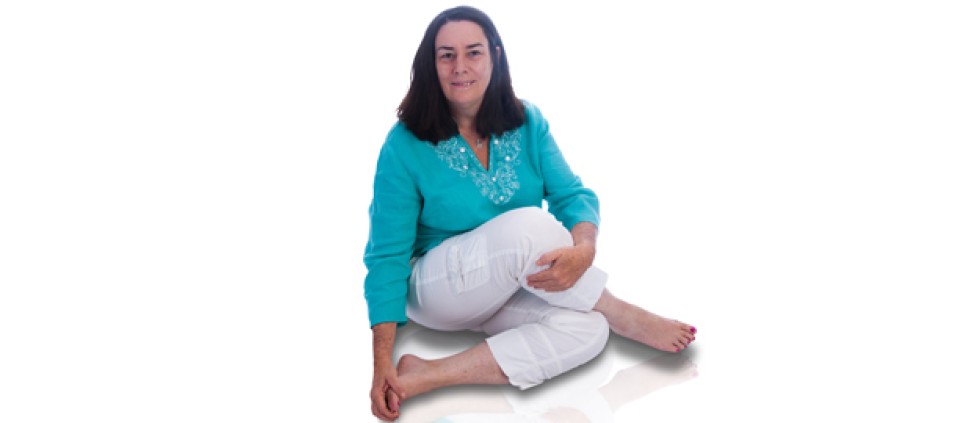A Mother’s Journey from Trauma to a Path of Healing

by Lorraine Cannatta
My decision to study Ayurveda evolved out of a family trauma. My son, Jacob, and his wife and daughter were visiting me and my husband, Peter, in the summer of 2005 when Jacob became severely ill. He was hospitalized and put on life support. The doctors were unable to determine a diagnosis, which made treatment difficult. For several days, we were unsure whether he would speak again, or even awaken. One or more family members were with him around the clock.
After 11 days in the critical-care unit, Jacob came home and began his recovery with us. Today, we are blessed to have him well. Though we were never able to get definitive evidence, we believe inhaling mold while renovating his newly purchased home caused what is called a “whiteout” of the lungs—when the alveoli constrict so tightly there’s no longer any space for air to pass.
While Jacob was recovering, I was also helping to care for my 80-year-old mother and our 10-month-old granddaughter. When my son drove away with his family after three months, I felt a deep emptiness and fatigue overcome me. In the next weeks, I experienced episodes of extreme anxiety, frequent crying spells, and deep dark moments of depression. I couldn't cook, clean my house, or even keep track of my own clothing. My body hurt all over. I had no appetite and I couldn’t sleep. Every time I heard an ambulance, I froze.
When I at last admitted that I was unable to integrate and move on from this family crisis, I sought help from a local therapist and was diagnosed with post-traumatic stress disorder.
I knew I needed to heal my life. When the Kripalu catalog arrived in the mail one day, I remembered the solace and comfort I had found during my visits there. The food, the yoga, and the peaceful environment offered rejuvenation. I read about the Kripalu School of Ayurveda, and felt hope spring up inside me.
My first career was as a surgical technologist, assisting as part of a surgical team removing diseased body parts, reconnecting broken bones, and attending to the dysfunctions in the body’s systems. The healing process has always fascinated me, and I was intrigued by the philosophy of Ayurveda, which encourages behavioral changes that bring one’s body, mind, and spirit into balance. In the fall of 2005, I signed up for the training.
A quote from Dr. David Frawley stands out in my mind from the first weekend of the training: “Intelligence is the flame of truth that illuminates our lives; how we cultivate it determines the light by which we live and grow, or the darkness by which we become narrow and decay.” My experience of that weekend was of being cradled within a sense of oneness. We journaled, chanted, learned how to establish a daily routine of Ayurvedic self-care, and studied this 5,000-year-old science with brilliant contemporary teachers like Vasant Lad and Robert Svoboda.
I learned and practiced ways to balance my constitution, or dosha, using specific foods, asanas, and meditation practices—and I started to feel better. My focus cleared, I began to sleep soundly, and I found myself laughing again.
After I graduated in 2007, I started using Ayurveda with my family and friends in small ways, and in 2009, I opened Five Elements Healing Center here in my small town of Colchester, Connecticut. My practice focuses on women challenged by postpartum, menstrual, and pre- and post-menopausal transitions. Practicing Ayurveda has also alleviated the suffering of several of my clients who are recovering from the residual effects of addictions.
This May, the state’s Department of Children and Families invited me to do an Ayurvedic workshop during a wellness day for employees at their headquarters in Norwich, Connecticut, about a half hour away from me. Along with the workshop, I agreed to offer 15-minute consultations. I had no idea what the reaction would be, and whether anyone would be interested—until I saw the sign-up sheet for consultations was full, and people were waiting outside the door.
It was amazing to sit with these caseworkers and social workers who care for troubled families, attending to children living in abusive homes and parents who are struggling with addictions. They came seeking information about digestion issues, fatigue, and anxiety, and they were so open and receptive to the information and assignments I gave them. One supervisor sat on the floor with me and did Empty Bowl Meditation, a technique taught by Vasant Lad. Wearing a bright yellow shirt and matching tie, he took off his shoes, sat cross-legged, and allowed himself to pause and listen for his breath. It was such an honor to bring Ayurveda to this community, offering them practices that create healing and simplicity amid chaos.
I will continue to be involved in the department’s wellness program, and they recently started a yoga class in their building. Through these practices, they are listening to themselves and those they serve. Knowing how deeply their lives will be affected by this, and knowing how many lives they in turn will affect, I can see the reality of change right in front of me. I am so grateful to be able to do this work.
Lorraine Cannatta is an Ayurvedic practitioner, licensed massage therapist, and craniosacral therapist.
© Kripalu Center for Yoga & Health. All rights reserved. To request permission to reprint, please e-mail editor@kripalu.org.